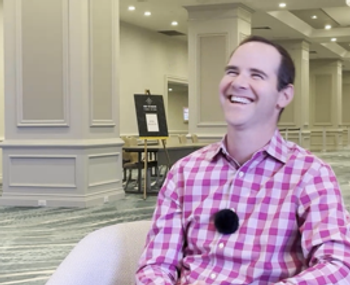
APA Rebuts Study on Autism
Autism: The DSM-5 Neurodevelopmental Disorders Work Group questions the validity of a study by James McPartland and colleagues.
In a recent commentary, the DSM-5 Neurodevelopmental Disorders Work Group responded to a study that challenges the proposed DSM-5 diagnostic criteria on autism spectrum disorder (ASD).1 The commentary, published in the April issue of the Journal of the American Academy of Child & Adolescent Psychiatry (JAACAP), takes issue with the study by James McPartland and colleagues,2 and addresses what it deems “serious methodological flaws.”
The Work Group refutes the authors’ conclusions that the “Proposed DSM-5 criteria could substantially alter the composition of the autism spectrum. Revised criteria improve specificity but exclude a substantial portion of cognitively.” Dr McPartland and colleagues’ research study, titled Sensitivity and Specificity of Proposed DSM-5 Diagnostic Criteria for Autism Spectrum Disorder, also states, “a more stringent diagnostic rubric holds significant public health ramifications regarding service eligibility and compatibility of historical and future research.” The study in question is also published in the April issue of JAACAP.
The Work Group, led by Susan Swedo and colleagues, questions the validity of the findings because they are based on secondary analysis of an 18-year-old study. It also challenges the “restrictive” data collection and evaluation processes and thereby questions the conclusions. The archived data used in the study have “too many inherent limitations to assess the criteria proposed for the DSM-5, particularly in regard to sensitivity and specificity,” say Swedo and colleagues.
In a press release,3 the APA says the following:
The Work Group has proposed that autism, Asperger’s disorder, pervasive developmental disorder (not otherwise specified) and childhood disintegrative disorder be consolidated within the overarching category of ASD. The change signals how symptoms of these disorders represent a continuum from mild to severe, rather than being distinct disorders. The new category is expected to help clinicians more accurately diagnose people with relevant symptoms and behaviors by recognizing the differences from person to person, instead of providing general labels that tend not to be consistently applied across different clinics and centers.
Developing more useful diagnostic criteria for clinicians and individuals with ASD has been the core objective of the Work Group’s efforts. For example, the proposed measures indicate increased sensitivity in regard to age of onset. DSM-IV requires functioning delays to be present prior to age 3; DSM-5 criteria would extend this until “social demands exceed limited capacities,” as long as symptoms were present in early childhood. Despite what some critics have suggested, the issue of containing autism rates was not considered by the Work Group, nor was it a factor in revising the criteria.
The ASD criteria, are being proposed for the fifth edition of the Diagnostic and Statistical Manual of Mental Disorders(DSM-5). The Work Group says that it is “not yet known” if it will accurately encompass all individuals with ASD with the diagnostic criteria, but that “preliminary data examined as part of the Work Group’s continuing review have indicated that the criteria would be both sensitive and specific-rather than one benefiting at the expense of the other.” They concede, “further analyses using data from the recently completed DSM-5 field trials are under way.”
Chair of the DSM-5 Task Force, Dr David Kupfer, states the Work Group is extraordinarily thorough and the APA remains open to concerns of academic and advocacy communities. He concludes the APA “supports the decisions that these leading researchers and clinicians have made,” and “the proposed ASD criteria are backed by the scientific evidence.”
References:1. Swedo SE, Baird G, Cook EH Jr, et al. Commentary from the DSM-5 Workgroup [sic] on Neurodevelopmental Disorders. J Am Acad Child Adolesc Psychiatry. 2012;51:347-349.
2. McPartland JC, Reichow B, Volkmar FR. Sensitivity and specificity of proposed DSM-5 diagnostic criteria for Autism Spectrum Disorder. J Am Acad Child Adolesc Psychiatry. 2012;51:368-383. Epub 2012 Mar 14.
3. American Psychiatric Association. Commentary Takes Issue with Criticism of New Autism Definition: DSM-5 Experts Call Study Flawed. Press release, March 27, 2012. http://www.psych.org/MainMenu/Newsroom/NewsReleases/2012-News-Releases/Commentary-Takes-Issue-with-Criticism-of-New-Autism-Definition.aspx?FT=.pdf. Accessed March 27, 2012.
References:
References:1. Swedo SE, Baird G, Cook EH Jr, et al. Commentary from the DSM-5 Workgroup on Neurodevelopmental Disorders. J Am Acad Child Adolesc Psychiatry. 2012;51:347-349.
2. McPartland JC, Reichow B, Volkmar FR. Sensitivity and specificity of proposed DSM-5 diagnostic criteria for Autism Spectrum Disorder. J Am Acad Child Adolesc Psychiatry. 2012;51:368-383. Epub 2012 Mar 14.
3. American Psychiatric Association. Commentary Takes Issue with Criticism of New Autism Definition: DSM-5 Experts Call Study Flawed. Press release, March 27, 2012.
Newsletter
Receive trusted psychiatric news, expert analysis, and clinical insights — subscribe today to support your practice and your patients.







